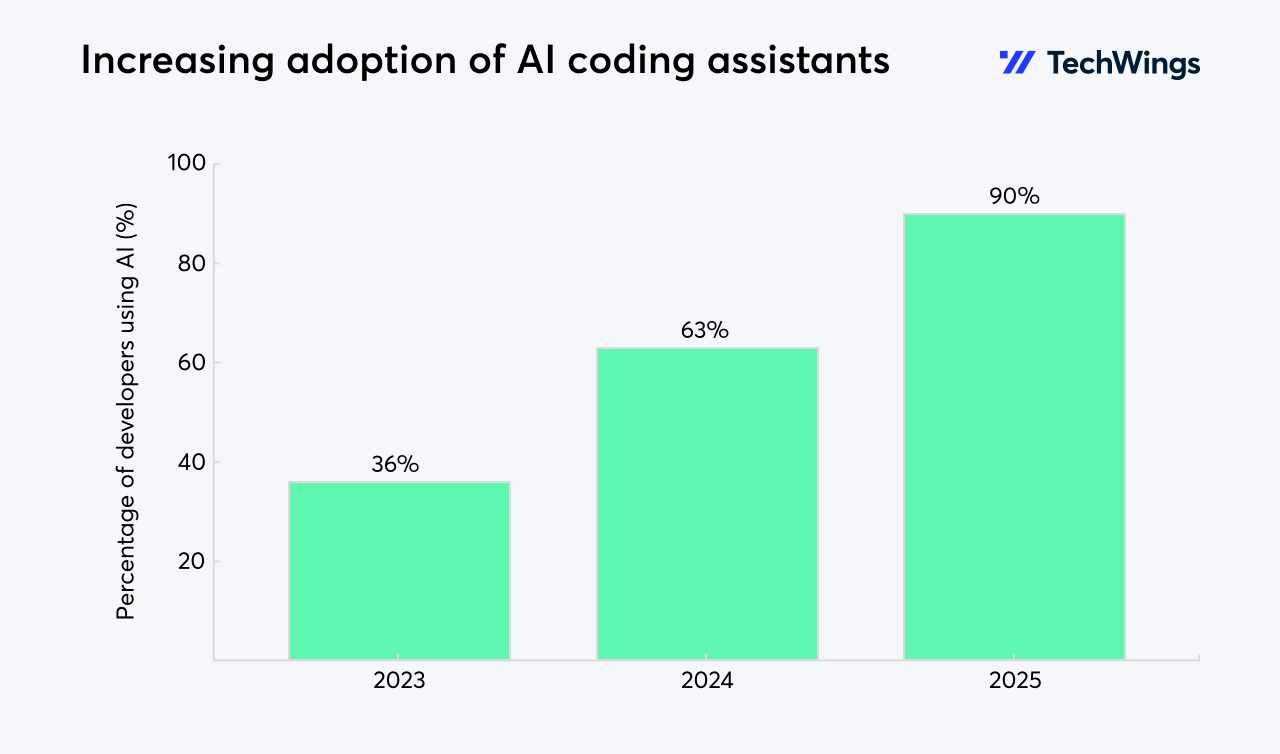Artificial intelligence (AI) continues to transform various industries, with software development prominently benefiting from innovations such as AI-powered coding assistants. Tools like Cursor, Codeium, and Bolt claiming to become integral to modern programming, empowering developers to streamline workflows, enhance code quality, and significantly reduce time spent on boilerplate tasks.
Spotlight on AI coding assistants
While numerous AI-powered tools exist in the market today, this comparison focuses specifically on some of the most talked-about solutions that have gained significant traction in the development community. Notably, we have excluded widely recognized tools like GitHub Copilot from this particular analysis to concentrate on emerging alternatives making waves among developers.
1. Cursor
Cursor is an advanced AI-driven code editor that integrates directly into the developer’s coding environment. Developed as a fork of Visual Studio Code, Cursor enhances productivity by allowing developers to perform sophisticated coding tasks through intuitive natural language interactions. It is especially popular among developers seeking to accelerate their coding processes while maintaining code quality.
Smart autocomplete: Anticipates and suggests code snippets rapidly;
Intelligent code generation: Allows developers to generate or modify classes and functions using natural language prompts;
Codebase navigation: Enables natural language queries for efficient code retrieval;
Efficient refactoring: Facilitates bulk edits and smart code rewrites seamlessly.
2. Codeium
Codeium excels in providing robust autocompletion capabilities across more than 70 programming languages, significantly reducing coding errors and improving developer efficiency. Popular among teams working in diverse technological stacks, Codeium streamlines coding efforts and minimizes the cognitive load on developers by anticipating their needs.
AI-chat integration: Provides AI-driven insights and solutions within the IDE;
Context-aware autocompletion: Delivers highly relevant code suggestions instantly;
Broad language support: Compatible with numerous programming languages for versatile project applications;
IDE Integration: Seamless compatibility with Visual Studio Code and JetBrains suite.
3. Bolt
Bolt offers developers an innovative browser-based platform simplifying full-stack application development. Particularly valuable for rapid prototyping and quick project iterations, Bolt is ideal for developers who prefer working without extensive local setups.
Prompt-based coding: Converts natural language prompts directly into executable code;
Browser-based environment: Eliminates local setups, allowing seamless development and deployment directly within a web browser;
Rapid prototyping: Quickly prototypes and tests web applications, significantly reducing development cycles.
Insight into growing adoption
The integration of AI tools into the coding ecosystem is not just a trend—it’s rapidly becoming the standard. Recent data highlights this significant shift:
2023: Approximately 36% of software developers actively used AI assistants to understand coding errors and generate fixes (Statista);
2024: This adoption rate surged, with 63% of professional developers incorporating AI in their regular workflows (Stack Overflow Developer Survey);
2025: AI assistants will be used to write as much as 90% of software code within a year, underscoring a transformative shift (Business Insider).
This graphic illustrates a rapid upward trajectory in AI adoption among developers, marking a new era of coding efficiency and productivity.
A good tool in the right hands
AI coding assistants offer significant productivity gains but are designed to support - not replace - human developers. They excel at automating repetitive tasks, freeing engineers to concentrate on complex, creative, and strategic aspects of software development. However, several important challenges should be considered.
Lack of full control: Developers may not have complete oversight or understanding of AI-generated code, which can be particularly problematic in large-scale or mission-critical projects;
Intellectual property concerns: Using AI assistants often involves transmitting data to third-party servers. Cloud-based tools, in particular, can introduce risks related to IP protection, confidentiality, and compliance;
Outdated by design: LLMs are trained on data available up to a specific point in time. As such, they may not support the latest library versions or framework updates, and they can struggle with legacy codebases, deprecated components, or outdated dependencies;
Technical expertise still required: While helpful, AI tools cannot replace the need for deep technical knowledge, especially when working with complex backend architectures, high-load systems, or highly customized solutions involving serverless functions, intricate business logic, or diverse API integrations;
Risk of over reliance: Heavy reliance on specific AI platforms or ecosystems may lead to reduced flexibility, vendor lock-in, and limitations in adapting to new technologies or shifting development priorities.
Conclusion
The rise of AI coding assistants like Cursor, Codeium, Bolt, and GitHub Copilot marks a major shift in software development. As adoption grows, these tools are becoming essential for delivering high-quality software faster and more efficiently.
At TechWings, we strengthen our commitment to innovation by integrating cutting-edge AI tools into our workflows. Leveraging solutions like GitHub Copilot in our everyday work, especially for large codebases, we’ve accelerated development and significantly reduced time to market.

